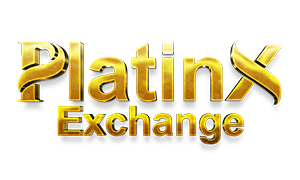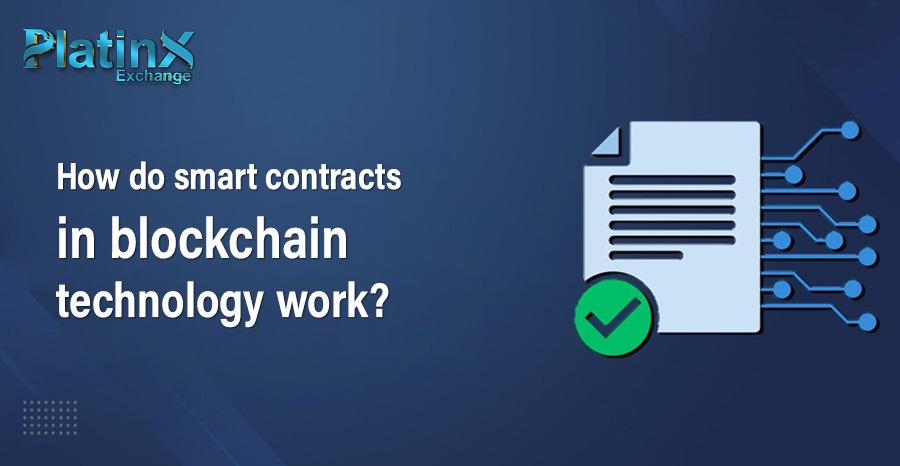Blockchain technology is a revolutionary innovation that has the potential to transform various industries and sectors. One of the most promising applications of blockchain technology is smart contracts. But what are smart contracts and how do they work? In this blog, we will explore the concept, features, benefits, and examples of smart contracts in blockchain technology.
What are smart contracts?
A smart contract is a digital agreement written in code, stored on a blockchain, and executed automatically without intermediaries. Powered by blockchain technology, smart contracts benefit from the blockchain’s security and transparency, providing users with a way to enforce agreements and streamline various processes.
Smart contracts are simply programs that run when predetermined conditions are met. They typically are used to automate the execution of an agreement so that all participants can be immediately certain of the outcome, without any intermediary’s involvement or time loss. For example, a smart contract can be used to transfer funds from one party to another only when a certain service is delivered or a certain condition is fulfilled.
How do Smart Contracts in Blockchain Technology Work?
Smart contracts in blockchain technology work by following simple “if/when…then…” statements that are written into code on a blockchain. A network of computers executes the actions when predetermined conditions have been met and verified. These actions could include releasing funds to the appropriate parties, registering a vehicle, sending notifications, or issuing a ticket. The blockchain is then updated when the transaction is completed. That means the transaction cannot be changed, and only parties who have been granted permission can see the results.
To establish the terms, participants must determine how transactions and their data are represented on the blockchain, agree on the “if/when…then…” rules that govern those transactions, explore all possible exceptions, and define a framework for resolving disputes. Then the smart contract can be programmed by a developer – although increasingly, organizations that use blockchain for business provide templates, web interfaces, and other online tools to simplify structuring smart contracts.
What are the Benefits of Smart Contracts in Blockchain Technology?
Smart contracts in blockchain technology offer several advantages over traditional contracts, such as:
- Speed: Smart contracts are executed automatically and instantly, reducing the time and cost of manual processing and verification.
- Accuracy: Smart contracts eliminate the errors and ambiguities that often result from human intervention and interpretation.
- Security: Smart contracts are encrypted and stored on a distributed ledger, making them resistant to tampering and hacking.
- Transparency: Smart contracts are visible and verifiable by all parties involved, ensuring trust and accountability.
- Efficiency: Smart contracts streamline complex and repetitive processes, such as payments, settlements, and compliance, saving resources and improving productivity.
What are some examples of smart contracts?
Smart contracts can be applied to various domains and scenarios, such as:
- Finance: Smart contracts can facilitate peer-to-peer lending, crowdfunding, derivatives, insurance, and remittances, among other financial services.
- Supply chain: Smart contracts can track and verify the origin, quality, and condition of goods, as well as automate payments and delivery.
- Healthcare: Smart contracts can store and share medical records, prescriptions, and insurance claims, as well as enforce data privacy and consent.
- Real estate: Smart contracts can simplify and secure the process of buying, selling, and renting properties, as well as managing deeds and titles.
- Government: Smart contracts can enable e-voting, e-identity, e-taxation, and e-governance, as well as improve public services and transparency.
Demystifying Smart Contracts in Blockchain Technology: Frequently Asked Questions
- Are smart contracts legally binding?
While the code itself may not hold legal weight in some jurisdictions, the terms outlined in the smart contract can be incorporated into traditional legal agreements, making them enforceable. It’s crucial to consult with legal professionals to ensure your smart contract aligns with relevant laws.
- How secure are smart contracts?
Smart contracts inherit the security of the underlying blockchain, generally considered highly secure due to cryptography and distributed ledger technology. However, vulnerabilities can exist in the code itself, highlighting the importance of careful development and auditing.
- Can mistakes in smart contracts be fixed?
Unfortunately, no. Due to the immutability of the blockchain, modifying a deployed smart contract is typically impossible. This emphasizes the need for thorough testing and error-free code deployment.
- How expensive are smart contracts?
Fees associated with smart contracts depend on the platform and network utilization. Generally, gas fees, used to compensate miners or validators for computing power, increase with network congestion. Consider optimizing your contract code for efficiency to minimize transaction costs.
- What happens if a smart contract is hacked?
While rare, smart contract hacks can have significant consequences. Hackers may exploit vulnerabilities to steal funds or manipulate contract execution. Choosing established platforms with robust security features and employing thorough code audits can help mitigate such risks.
- How do smart contracts differ from traditional contracts?
Smart contracts automate agreement execution, removing the need for intermediaries and manual verification. They offer increased transparency, immutability, and efficiency compared to traditional contracts, though legal enforceability may differ.
- What are the limitations of smart contracts?
Smart contracts rely on pre-defined conditions and can’t handle ambiguous situations as well as humans. Complex or subjective agreements may still require traditional legal frameworks. Additionally, scalability limitations in some blockchain platforms can pose challenges for widespread adoption.
- What are some popular examples of smart contract applications?
Beyond finance (DeFi), smart contracts are finding applications in supply chain management, voting systems, identity verification, and even artistic ownership through NFTs. The possibilities are constantly evolving!
- What are the prospects of smart contracts?
As blockchain technology matures and regulations adapt, smart contracts are expected to play a transformative role in various industries. Increased awareness, security advancements, and user-friendly development tools will likely fuel wider adoption in the coming years.
- Where can I learn more about smart contracts?
Numerous online resources, educational platforms, and developer communities offer in-depth information on smart contract development, applications, and technical aspects. Don’t hesitate to explore and dive deeper into this exciting field!
Conclusion
Smart contracts in blockchain technology are a powerful tool that can revolutionize the way we create and execute agreements. By leveraging blockchain technology, smart contracts can offer speed, accuracy, security, transparency, and efficiency to various transactions and processes. Smart contracts are not only a technical innovation, but also a social and economic one, as they can empower individuals and organizations to collaborate and cooperate in a trustless and decentralized manner.

